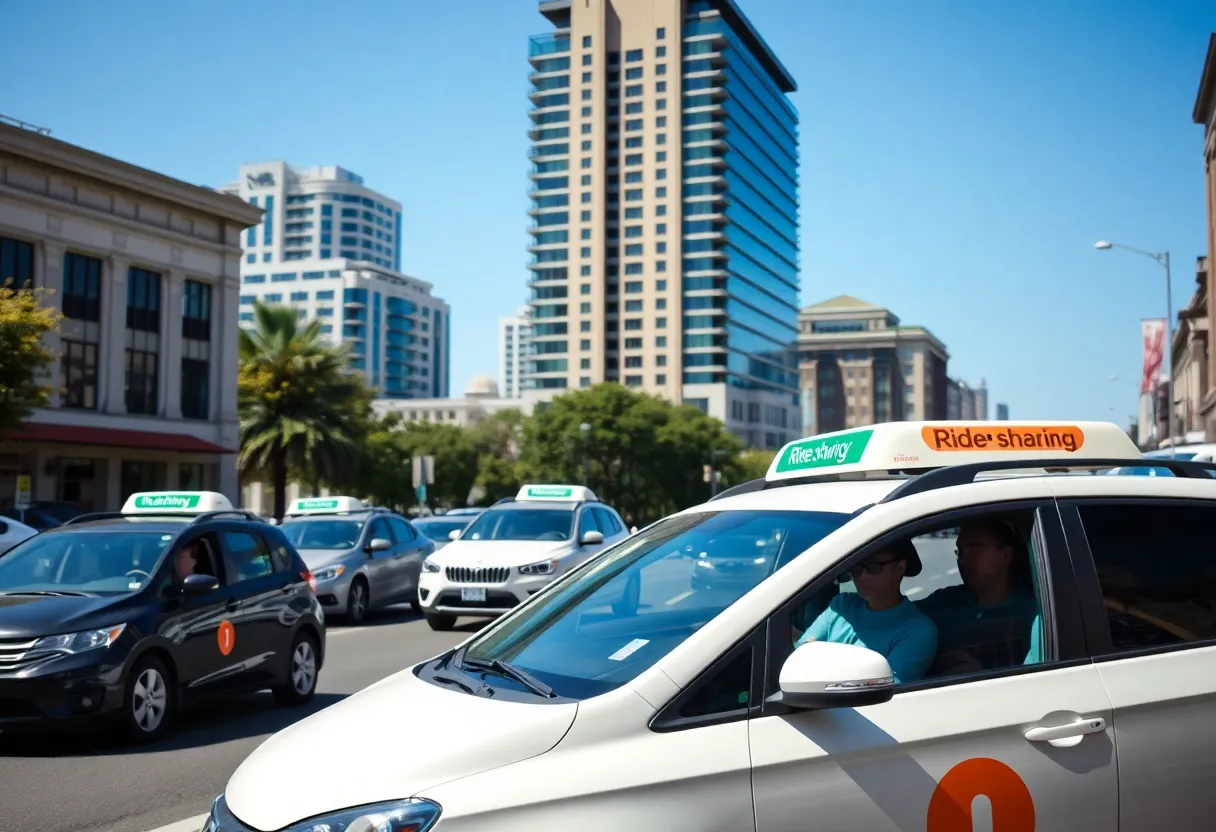News Summary
Uber is challenging a Georgia Court of Appeals ruling regarding a $9 million unpaid sales tax bill dating back to its early operations in the state. The company has consistently argued against the Department of Revenue’s authority to tax it as a traditional taxi service. Despite recent revenue growth, the company faces significant financial liabilities from this tax bill. Support for Uber’s appeal has grown among local organizations, fearing that upholding the court’s decision could create unfair market conditions for businesses in Georgia.
Atlanta, Georgia – Uber is appealing a ruling from the Georgia Court of Appeals regarding a $9 million unpaid sales tax bill that dates back to its early years of operation in the state, from July 2012 to June 2015. The appeal comes after a series of legal challenges in which the company has consistently argued against the Georgia Department of Revenue’s authority to tax its operations as if it were a traditional taxi service.
In 2018, the Georgia Department of Revenue issued an assessment against Uber for approximately $22 million in overdue sales tax and penalties related to its ride-hailing services. According to Uber, during its initial years, it did not collect sales tax from riders, believing that the responsibility for such taxes should fall on the drivers instead.
Despite recent financial successes, including a reported 14% year-over-year revenue increase to $11.5 billion and an operating income of $1.2 billion, Uber is facing substantial financial liabilities due to the tax bill. The Georgia Tax Tribunal ruled in 2022 that Uber owed about $9 million for unpaid sales tax, leading the company to escalate the matter to the state’s highest court.
The legal battle began when the Georgia Department of Revenue assessed Uber as a taxi and issued a tax bill that Uber disputes. The company argues that the Georgia General Assembly has exclusive authority to impose state taxes, and that treating Uber like a taxi company strikes at the core of its business model. Previously, Uber’s arguments have been consistently rejected by the Georgia Tax Tribunal, Fulton County Superior Court, and the Georgia Court of Appeals, which upheld the authority of the Department of Revenue to tax its services.
Fulton County Superior Court Judge Charles Eaton previously affirmed that taxing Uber is necessary, citing the logistical challenges of directly taxing numerous individual drivers. The recent affirmation from the Georgia Court of Appeals further confirmed this position and rejected Uber’s claims regarding the Revenue Department’s powers. In fact, Uber noted that if the current decision stands, Georgia would become the only state allowing an administrative agency to impose sales taxes based on its regulatory interpretations.
In light of the ongoing legal challenges, support for Uber’s appeal has garnered backing from various organizations, including the Georgia Chamber, Metro Atlanta Chamber, and the Georgia Association of Manufacturers. These groups argue that upholding the lower court’s decisions could lead to unfair market conditions for businesses operating in Georgia.
A tax expert from Connecticut echoed similar concerns, suggesting that the judicial decisions involved in the Uber case could have adverse ramifications on the business landscape within the state. As part of its ongoing operations, Uber has been paying a flat fee on rides since 2020 as an agreement to support transit funding, which contrasts with the traditional sales tax model that prompted the initial dispute.
This appeal to the Georgia Supreme Court comes at a critical time for Uber as it continues to navigate a complex and evolving regulatory environment. The outcome of this case could have lasting implications not only for Uber but for other ride-hailing services and businesses operating within Georgia.
Deeper Dive: News & Info About This Topic
- Atlanta Journal-Constitution: Facing $9M Tax Bill, Uber Turns to Georgia Supreme Court
- Law360: Uber’s Allies Say Georgia Tax Violates Separation of Powers
- Claims Journal: Uber and Lyft Drivers to Claim Share of $328M Settlement
- Reuters: EV Companies Urge Trump Not to Kill Vehicle Tax Credits
- Top Class Actions: $290M Uber Driver Fees Class Action Settlement
- Wikipedia: Taxation in the United States
- Google Search: Uber Georgia Tax Appeal
- Google Scholar: Uber Tax Case Georgia
- Encyclopedia Britannica: Tax
- Google News: Uber Court Case

Author: STAFF HERE AUGUSTA WRITER
The AUGUSTA STAFF WRITER represents the experienced team at HEREAugusta.com, your go-to source for actionable local news and information in Augusta, Richmond County, and beyond. Specializing in "news you can use," we cover essential topics like product reviews for personal and business needs, local business directories, politics, real estate trends, neighborhood insights, and state news affecting the area—with deep expertise drawn from years of dedicated reporting and strong community input, including local press releases and business updates. We deliver top reporting on high-value events such as Arts in the Heart Festival, Westobou Festival, and Masters Week. Our coverage extends to key organizations like the Augusta Metro Chamber of Commerce and Greater Augusta Arts Council, plus leading businesses in manufacturing and healthcare that power the local economy such as Textron Specialized Vehicles, Cardinal Health, and Nutrien. As part of the broader HERE network, including HEREAtlanta.com and HERESavannah.com, we provide comprehensive, credible insights into Georgia's dynamic landscape.


